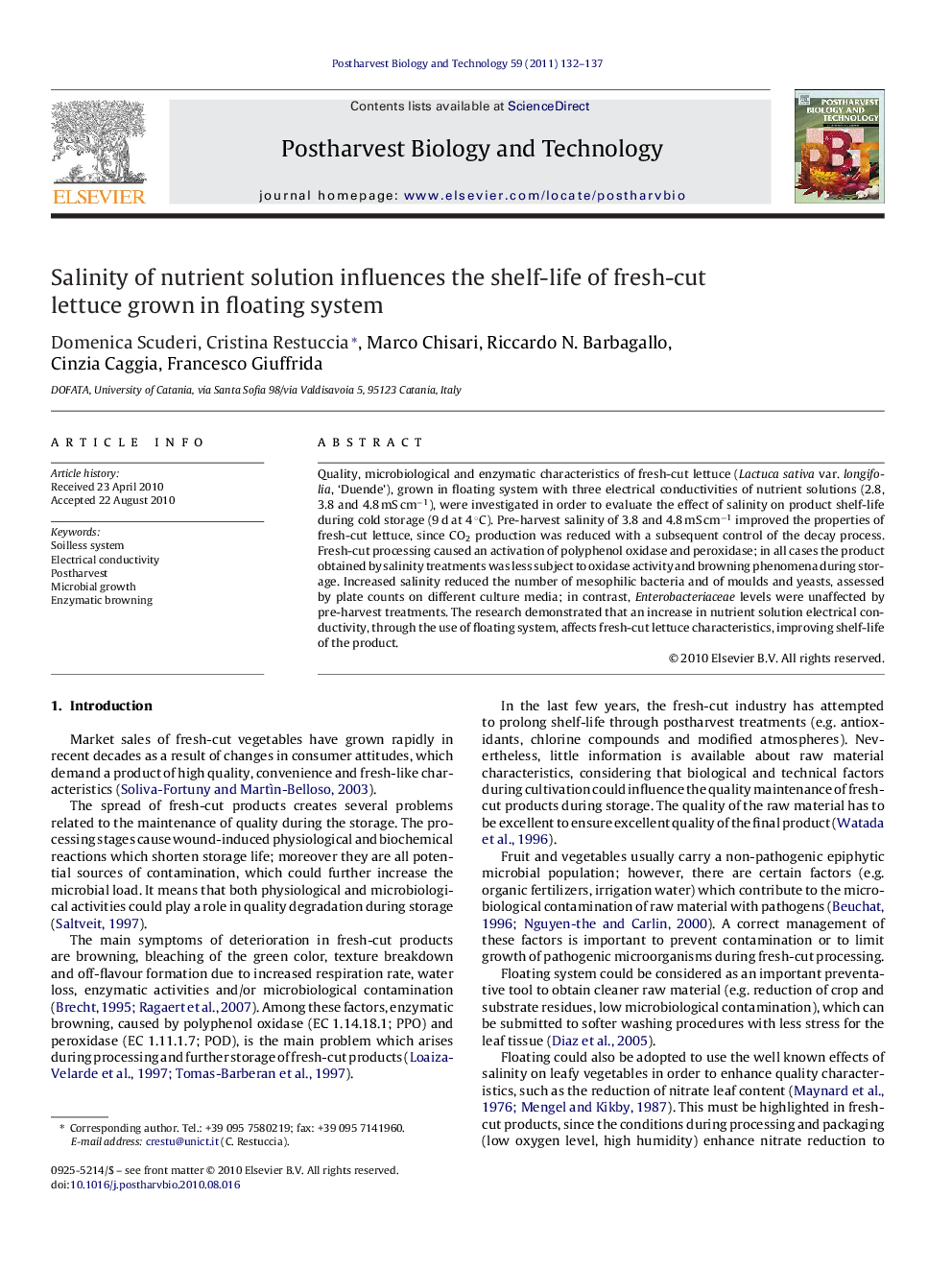| Article ID | Journal | Published Year | Pages | File Type |
|---|---|---|---|---|
| 4518912 | Postharvest Biology and Technology | 2011 | 6 Pages |
Quality, microbiological and enzymatic characteristics of fresh-cut lettuce (Lactuca sativa var. longifolia, ‘Duende’), grown in floating system with three electrical conductivities of nutrient solutions (2.8, 3.8 and 4.8 mS cm−1), were investigated in order to evaluate the effect of salinity on product shelf-life during cold storage (9 d at 4 °C). Pre-harvest salinity of 3.8 and 4.8 mS cm−1 improved the properties of fresh-cut lettuce, since CO2 production was reduced with a subsequent control of the decay process. Fresh-cut processing caused an activation of polyphenol oxidase and peroxidase; in all cases the product obtained by salinity treatments was less subject to oxidase activity and browning phenomena during storage. Increased salinity reduced the number of mesophilic bacteria and of moulds and yeasts, assessed by plate counts on different culture media; in contrast, Enterobacteriaceae levels were unaffected by pre-harvest treatments. The research demonstrated that an increase in nutrient solution electrical conductivity, through the use of floating system, affects fresh-cut lettuce characteristics, improving shelf-life of the product.
